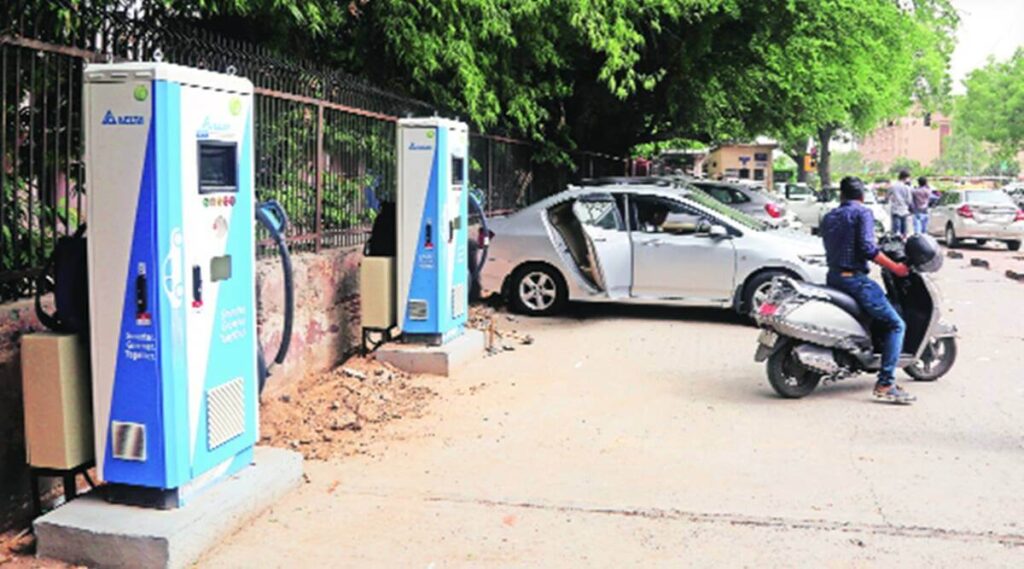EV Charging Management Systems (EV CMS) have emerged as a critical solution for promoting sustainable transportation and reducing carbon emissions. By integrating advanced technologies and intelligent features, EV CMS optimizes charging processes, enhances energy efficiency, and contributes to a greener future. In this article, we will delve into the positive impact of EV CMS on sustainability and its role in reducing carbon emissions.
Integration of Renewable Energy Sources: Maximizing Clean Energy Utilization
EV CMS enables the seamless integration of renewable energy sources into the charging infrastructure. By leveraging smart grid technology and advanced algorithms, these systems prioritize charging during high renewable energy generation periods. This approach maximizes the use of clean and green energy, further reducing carbon emissions associated with charging electric vehicles. By facilitating the transition to a low-carbon energy system, EV CMS contributes to a more sustainable and environmentally friendly transportation ecosystem.
Intelligent Grid Interactions: Supporting Grid Stability and Demand Response
Smart technology is a cornerstone of EV CMS, enabling intelligent grid interactions and supporting grid stability. These systems have the capability to participate in demand response programs, allowing EVs to adjust charging rates or postpone charging activities during peak demand periods. By effectively managing electricity demand, EV CMS helps to balance the grid and mitigate strain on the energy infrastructure. This not only enhances the overall reliability of the grid but also harnesses the potential of EVs as flexible energy resources, further reducing carbon emissions.
Data-driven Decision Making: Optimizing Charging Infrastructure and User Experience
EV CMS generates valuable data and analytics that can be utilized to optimize charging infrastructure and improve user experiences. By analyzing charging patterns, user behavior, and infrastructure performance, stakeholders can gain valuable insights for informed decision-making. Let us look in detail at how data-driven decision-making helps reduce carbon footprint and encourage sustainable transportation.
Resource Allocation: Data-driven decision-making enables stakeholders to optimize resource allocation by analyzing charging patterns and user behavior. This analysis helps identify high-demand areas, allowing for the strategic deployment of charging stations. This targeted approach minimizes the need for unnecessary infrastructure development while ensuring sufficient charging availability. As a result, it reduces resource waste, promotes sustainable growth, and enhances the overall efficiency of the charging network.
Predictive Maintenance: By collecting and analyzing data on how the charging infrastructure is performing, stakeholders can spot maintenance needs and potential issues before they become major problems. This proactive approach allows for prompt maintenance and repair, reducing downtime and ensuring the charging stations work efficiently. As a result, it cuts down on unnecessary resource usage, extends the lifespan of the charging equipment, and reduces overall waste generation.
User Engagement and Education: Data-driven decision-making enables stakeholders to enhance user engagement and education efforts. By analyzing user behavior, charging patterns, and preferences, stakeholders can customize educational campaigns and incentives that promote sustainable charging practices. This approach empowers users to make well-informed choices regarding the timing and location of their electric vehicle charging, fostering behaviors that optimize energy consumption and minimize their carbon footprint.
Scalability and Adaptability: It offers valuable information regarding the scalability and adaptability of the charging infrastructure. Through continuous monitoring and analysis of data, stakeholders can identify regions experiencing a rise in charging demand and plan for future expansion accordingly. This proactive approach guarantees that the charging network can effectively meet the changing requirements of electric vehicle users, thereby fostering the long-term sustainability of the transportation sector.
Conclusion
EV Charging Management Systems play a vital role in fostering sustainability, reducing carbon emissions, and driving the widespread adoption of electric vehicles. These systems contribute to a greener and more sustainable transportation ecosystem through efficient charging processes, integration of renewable energy sources, intelligent grid interactions, and data-driven decision making. By embracing EV CMS, we can expedite the transition to a low-carbon future, creating a cleaner and healthier environment for generations to come.
In conclusion, if you are in search of White Label EV Charging Management Software, we are here to assist you. We provide White Label CMS Software as a service, helping you digitalize your EV charging solution and enhance user experience. By partnering with us, you can unlock the numerous benefits associated with our comprehensive solution. Together, let’s drive sustainability forward and shape a better future.



